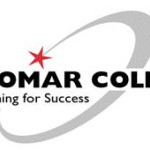- Industrie: Education
- Number of terms: 12355
- Number of blossaries: 0
- Company Profile:
Founded in 1946, Palomar College is a public two-year community college in the city of San Marcos, located in north San Diego County, California. Palomar offers over 300 associate degree, certificate programs and is designated by the U.S. Department of Education as an Hispanic-Serving Institution ...
Progressively changing zones of degree difference in frequency of a trait with movement from one region to another. The gradual decrease in frequency of the B blood allele going west in Europe is an example of such a gradation or clinal distribution. See discontinuous distribution.
Industry:Anthropology
Prominent projecting bony bars or brow ridges above the eyes. This trait was characteristic of Homo erectus and some other early humans.
Industry:Anthropology
Potentially, a chronometric dating method based on the fact that obsidian, or volcanic glass, progressively develops a thin chemically altered outer layer due to the absorption of water. The thickness of this hydration layer is directly proportional to the amount of time since the rock was formed or since a fresh surface was exposed to the elements. Since the rate of hydration varies between samples from different volcanic sources, this technique could arguably be considered relative rather than chronometric.
Industry:Anthropology
Permanently frozen soil. This is a common condition above the Arctic Circle and in other similarly cold environments.
Industry:Anthropology
Oxygen deprivation. This condition can occur at high altitude. Symptoms include a reduced ability to do work, fatigue, dizziness, nausea, and an inability to effectively perform memory intensive tasks. Even moderate hypoxia results in the death of some individuals due to heart failure. In very high mountain areas, hypoxia can cause pulmonary edema and/or cerebral edema, both of which are life-threatening conditions that are aspects of what is often referred to as acute mountain sickness.
Industry:Anthropology
New Guinea and other nearby islands in the Southwest Pacific Ocean. Indigenous people from this region are referred to as Melanesians.
Industry:Anthropology
Offspring that are the result of mating between genetically similar kinds of parents--the opposite of hybrid. Purebred is the same as true breeding.
Industry:Anthropology
One of two or more strands of a chromosome that are joined at a centromere.
Industry:Anthropology
Narrow gouging chisels used to make and shape a host of other implements out of bone, tusks, antler, or wood. They were usually made from blade flakes in the late Upper Paleolithic tool traditions.
Industry:Anthropology
Naming, describing, and classifying organisms into different categories on the basis of their appearance and other diagnostic characteristics as well as their evolutionary relationships. The biological sciences primarily use the Linnaean classification system for this purpose.
Industry:Anthropology
